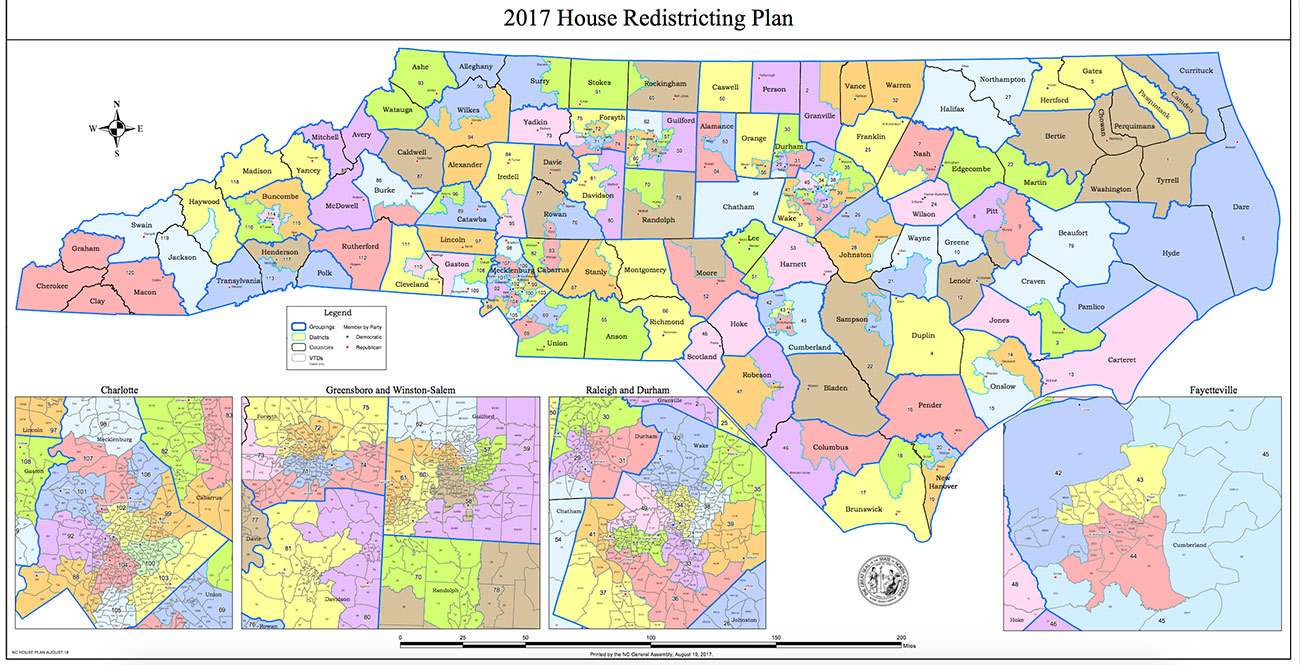Plaintiffs’ ‘baseless’ accusations served ‘transparent purpose of scoring political points’ without relevant supporting evidence
‘Plaintiffs have no choice but to wage a smear campaign’ with ‘terrible case’ after violating protective order, engaging in reckless disregard for truth
Filings in Covington case specifically said Rep. Lewis ‘does not know if Dr. Hofeller has drawn such a map,’ consistent with court’s ruling
Raleigh, N.C. – State lawmakers told a Wake County court on Monday that plaintiffs in a legislative redistricting case provided “zero support” for allegations that General Assembly leaders made misstatements in a federal case and accused attorneys representing Common Cause of ongoing misconduct in obtaining and disseminating files of a deceased Republican strategist.
The New York Times parroted the allegations from Common Cause earlier this month in an article published almost simultaneously with the group’s court filing without input from North Carolina lawmakers.
State lawmakers’ attorneys noted “there is nothing inconsistent with ‘evidence’ Plaintiffs purport to offer” and statements they made about potential redistricting in response to a ruling in the Covington v. North Carolina case, noting legislative defendants specifically said Rep. David Lewis “does not know if Dr. Hofeller has drawn such a map.”
“The notion that the Covington court believed there was an ironclad, affirmative assertion that Dr. Hofeller had not engaged in map-drawing contradicts what the court itself said on the matter,” lawmakers’ attorneys said in the filing on Monday.
Legislators asked the court to require Common Cause’s attorneys fully disclose how they obtained Dr. Hofeller’s files from his estranged daughter, who they were disseminated to, and the exact nature of any legal advice they provided Hofeller’s daughter regarding her possession of the documents.
The court filing also asks that Common Cause be required to “divest” or “destroy” the documents obtained from the deceased strategist and urges the court to consider disqualifying the group’s attorneys from the case for misconduct.
“Plaintiffs rendered baseless accusations and actively disseminated them in the national media based on percentages and inferences that are entirely indefensible,” lawmakers’ attorneys wrote.
“Plaintiffs have no choice but to wage a smear campaign designed to turn this forum into a stage for political disputes” and “have a terrible case for reasons that should now be clear.”
Lawmakers’ court filings also say Common Cause’s justifications for its assertions of perjury are based on “wrong and irrelevant” figures that purposefully ignore a whole-county redistricting rule that “creates a very high overlap between any two lawful North Carolina maps.”
“It appears that the maps on Dr. Hofeller’s computer have approximately the same overlap with maps proposed by the Covington special master as with the enacted plans,” lawmakers noted.
“No one would seriously contend that Dr. Hofeller actually drew the special master’s proposals. In fact, maps proposed by Common Cause are markedly similar to Dr. Hofeller’s maps.”
Attorneys for North Carolina lawmakers also noted significant contradictions in testimony by Common Cause leaders and Mr. Hofeller’s daughter about how the deceased strategist’s documents were obtained and delivered to the plaintiffs in the case.
The court filing also suggests that attorneys for Common Cause may have violated ethics rules by giving legal advice to Mr. Hofeller’s daughter in contradiction with her own interests and standards of professional conduct.
It further alleges potential professional misconduct related to the drafting of a subpoena for the Hofeller materials, and notes the “procedurally improper” court filing alleging misstatements to a federal court had no relevance to the case.
“Plaintiffs, however, opportunistically dropped their false allegations into a filing with this Court and promptly circulated the allegations to the national media for the transparent purpose of scoring political points,” lawmakers told the court.


